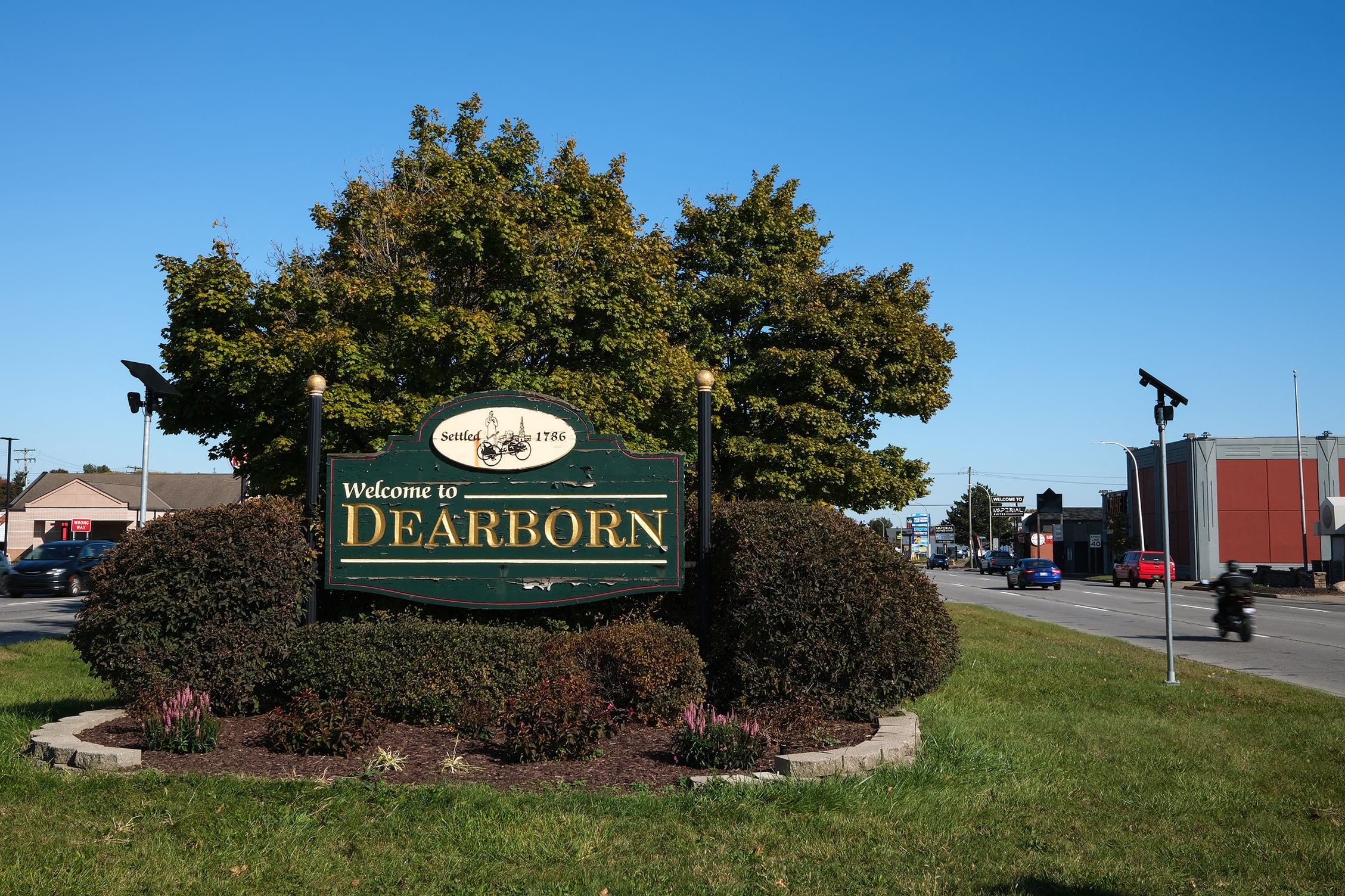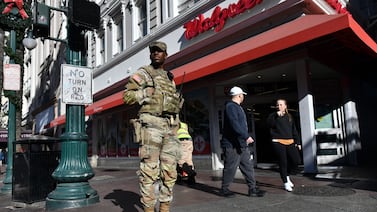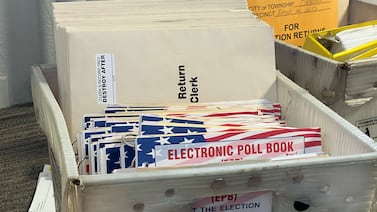Votebeat is a nonprofit news organization reporting on voting access and election administration across the U.S. Sign up for Votebeat Michigan’s free newsletter here.
Taxpayers will be on the hook for reprint costs after Dearborn, Michigan, printed and mailed out thousands of ballots that listed an incorrect candidate. But it’s unclear whether paying the bill will be the responsibility of the city or Wayne County.
City officials estimate that Dearborn printed about 10,000 ballots that incorrectly listed Mohammed Shegara as a candidate for City Council even though he dropped out of the race in April. Roughly 9,000 of those went out to voters, City Clerk George Darany told Votebeat.
To reprint and resend corrected ballots cost about $3,600, Darany said. The postage part of that, 21.3 cents per ballot, came out of the city’s account already, but no one has been billed yet for the reprint part, which is about 15 cents a ballot.
Darany said the error involved officials in both the city and county clerk’s offices — the county is responsible for designing the ballot — so the city may ask the county to shoulder part of the cost. County officials, for their part, say the cost should fall squarely on Dearborn.
When his office submitted the lists of candidates to the county in the spring, Darany said, officials noted multiple times that Shegara had dropped out of the race by the city’s deadline.
“Unfortunately, when we received the proof ballot (from the county), his name was still on it,” Darany said. His staff found and pointed out other errors, he said, but “we didn’t notice that person’s name.” (Shegara told the Detroit Free Press that he was confused when he saw his name on the ballot.)
Several people in the Dearborn Clerk’s office review the ballot, including the deputy clerk and the elections supervisor, but Darany is the final signoff.
While Wayne County officials designed the ballot, they said Dearborn should pay for the reprint, particularly as the ballot contains only local races: Dearborn’s mayor is up for reelection, as is Darany. The entire City Council is also on the ballot, alongside a proposal to expand the council and divide the city into wards for council representation.
“In this case, the Dearborn City Clerk and the Dearborn City Election Commission failed to correct the error on the ballot proof prior to approval,” Dorian Tyus, spokesperson for Wayne County Clerk Cathy Garrett, wrote in an email Wednesday.
The city clerk’s office and the city’s election commission “will be responsible for the cost of reprinting the ballots in this case,” Tyus wrote.
Genya Coulter, election systems analyst at the Open Source Election Technology Institute, said such issues with ballots are more common than people realize, particularly in places like Michigan where so many communities run their own elections.
In Owosso last summer, a misplaced decimal point meant a heading in a millage question was different from the question itself. No one caught the error until a few weeks before the election, “despite multiple rounds of proofreading,” City Clerk Amy Kohagen said at the time. (In an interview with Votebeat, she recalled the time years ago when a county ballot had the word “public” misspelled as “pubic.”) Reprints have also been required after candidates were incorrectly left off the ballot or after incorrect color coding meant voters got the wrong ballot for their precinct.
Coulter said Dearborn officials did the right thing after discovering the error by publicizing the problem early and immediately implementing a solution
That quick acknowledgement meant that only a small number of residents — about 5% of absentee voters — had actually returned the incorrect ballots before the problem was noticed, Darany said. Voters should have their new ballots, marked with a bright green sticker, in their hands already.
If voters return both ballots, the original ballot will be spoiled and the correct one will be processed. For voters who return the initial ballot but not the corrected one, poll workers will have to copy their choices onto a corrected ballot and process that one. Only one ballot will ultimately be counted for each voter.
That’s already a familiar procedure for the city, Darany said. Last year, the city had to process about 350 ballots that way because overseas and military voters’ ballots “come back on a form,” and the choices have to be copied onto a ballot for counting, he said.
This year, he expects that even with the error, that number of ballots that need to be copied over will be the same or lower. The city will have extra people on standby to help.
As for the cost, Darany figures the city is still ahead of the game.
“One thing people don’t know is that we were planning at the end of the November to give the City Council a report letting them know how much we saved this year on elections because we did some consolidations, which means fewer workers, fewer tabulators to test and so on,” Darany said. “We were prepared to give the council a letter saying we had saved $27,000 this year amid our effort to make our elections more efficient. Now it just might be $27,000 minus that $3,600.”
Hayley Harding is a reporter for Votebeat based in Michigan. Contact Hayley at hharding@votebeat.org.





